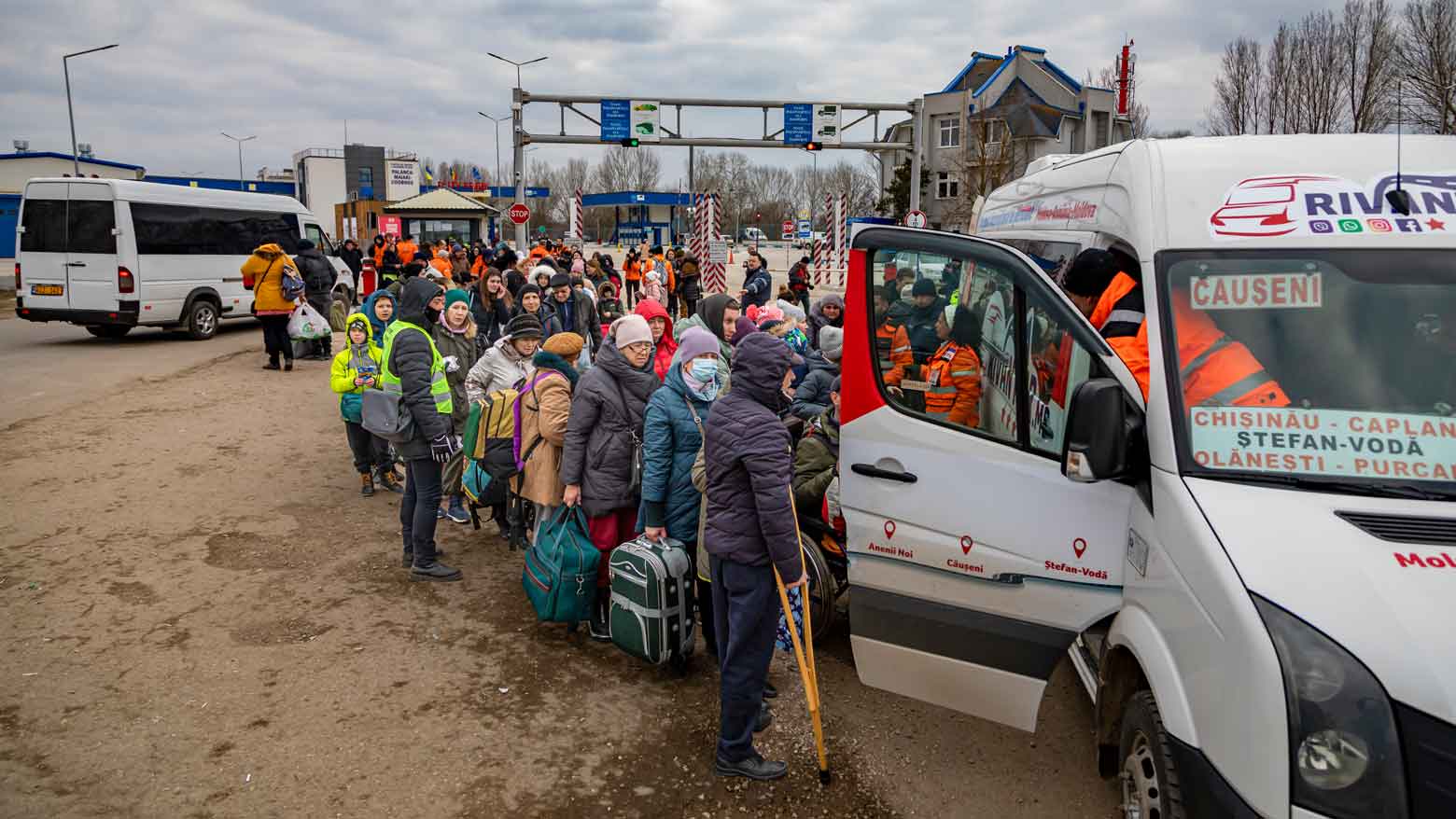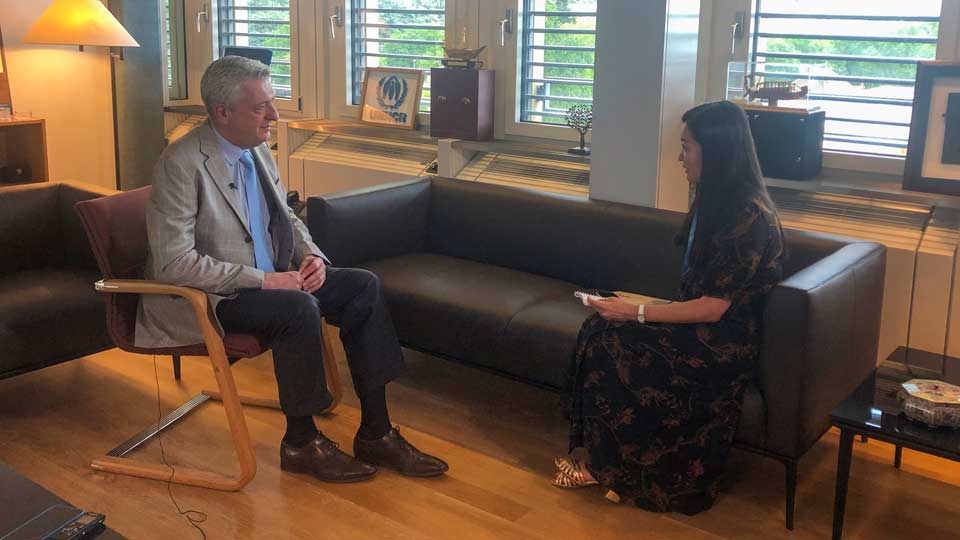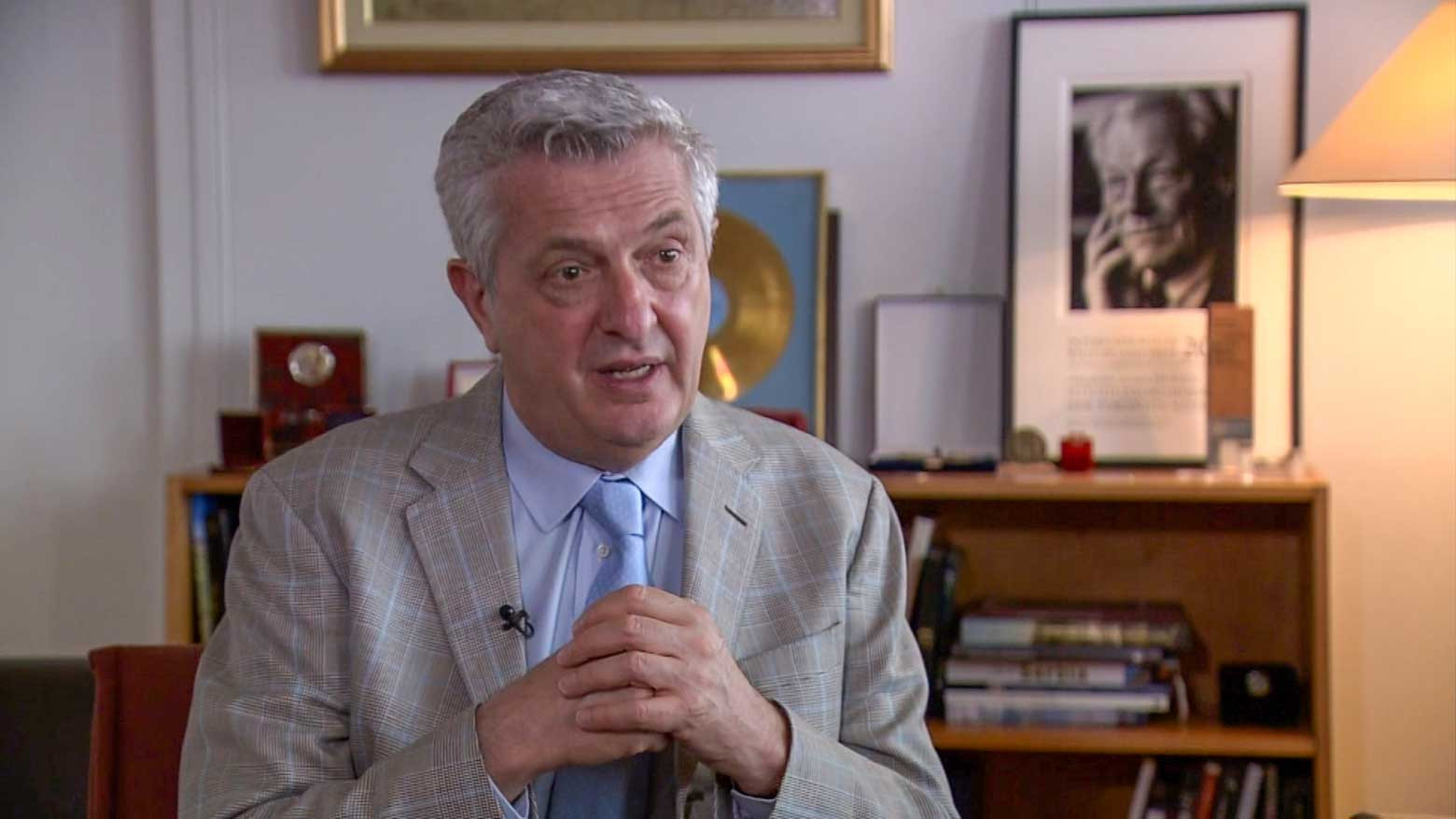The situation is growing from bad to worse as conflict forces people from their homes around the world. According to the UN High Commission for Refugees (UNHCR), the number of forcibly displaced people – refugees and internally displaced people (IDPs) – reached a record high last year and exceeded 100 million worldwide in May 2022.
Mass displacement due to Russia's invasion
Russia's invasion of Ukraine in February has created what the UNHCR describes as "one of the largest forced displacement crises since World War Two, and certainly the fastest."
The UN's World Refugee Day on June 20 recognized the plight of people who have been forced to flee. Grandi says the record high figures are "a very big concern", adding there are many escalating and existing crises that deserve attention.
Russia's invasion is one of the biggest concerns: "The challenges that the civilian population faces because of this war, especially in the war areas, are extremely dangerous," says Grandi. "There will continue to be displacement."
Grandi is not only concerned for the welfare of people who have already fled. He says the UNHCR must also prepare for their eventual return, or resettlement in safe areas.

Grandi is thankful for the global response to the Ukraine crisis, but at the same time, he points to other troubled regions, including Syria, Afghanistan, and Myanmar. "Resources mobilized to respond to the Ukraine crisis have been enormous all over the world," he says. "We're very grateful for that, including humanitarian help that we have received. But we are now beginning to be worried that this will be at the expense of other humanitarian or development responses across the world," Grandi cautions.
Rising prices cause concern
He worries about the knock-on effects: "Surely everybody knows that the food availability is impacted by the blockage of exports of grain and fertilizers from the war zone, from Ukraine. And, prices have risen in many countries. Energy has become more expensive. Here is another impact that we are starting to observe."
Grandi says as the Ukraine conflict drags on, and prices of fuel and wheat continue to rise, even more people will be forced into difficult conditions.
"Certainly in places that are already very fragile, take the Horn of Africa, for example, where you have conflict, you have insecurity, you have poverty, you have the impact of climate change. It's very tough in those areas, drought in particular. If in addition to that you have shortages of food imports, that will just make the situation more difficult for people. And I wouldn't be surprised if this caused additional displacement."

Britain under fire for Rwanda plan
People smuggling also remains a problem, highlighting the desperate measures some are prepared to take. The United Kingdom is dealing with increased numbers of English Channel illegal boat arrivals, but its response has drawn sharp criticism.
Grandi says Prime Minister Boris Johnson's $148 million deal with Rwanda to transfer illegal immigrants is unacceptable: "What we disagree with is the decision that the UK has made to move asylum seekers to another country very far away, and to ask that country to carry out the process to determine whether these people are refugees or not. This is a responsibility that the United Kingdom has itself for people arriving on its territory."
"Rwanda has hosted many refugees over the decades, but does not have the type of asylum system that is needed for this particular group of people. So it is also an additional burden on Rwanda that Rwanda cannot at the moment fulfil," says Grandi.
In Japan, there is widespread community support for Ukrainian refugees. But that does not mean the government will offer to resettle them. Last year, Japan took in just 74 refugees in total, including 32 from Myanmar. Grandi does recognize Japan for its continued financial support.
"Japan has always been an extraordinarily generous country. My plea is, please continue to help. I do count on the Japanese people and the Japanese government to respond to our appeal. We need more resources than last year.
"The reality is that there are many, many, more millions of refugees and displaced people since last year. We need to respond to that crisis."


